A year or two ago I nearly found myself in a spot of bother. There was something of a push amongst certain elements of Australian society to ‘Ban the Burqa’—in other words, to force Muslim women who choose to cover their faces to remove their veils. The rhetoric was mostly about national security and women’s rights, but it was quite clear that the push was based in pure racism (and yes, I’m aware that ‘Muslim isn’t a race.’ Just so we’re clear.)
I told a version of the biblical story of the Good Samaritan in our church newsletter that week, but instead of Levite, priests and Samaritans dealing with a Jew, it was Christians passing a Christian man by, and the person who stopped to offer assistance was a Muslim woman wearing a burqa.
A few days later I received a phone call from my state headquarters. Somehow what I had written had found its way to someone who likes to complain about these things, and they had rung both my boss and my boss’ boss to explain in no uncertain terms what a terrible thing I’d done to a beautiful story from the Bible. How dare I make a Muslim out to be the good guy (or girl)! A case of “ever hearing, but never understanding,” I presume. (For what it’s worth my denominational headquarters agreed with my reading of the parable and told Whingy McWhineypants to go home and learn to read the Bible.)
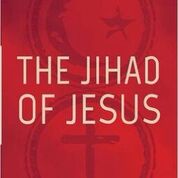 This story came to mind recently when I received a review copy of Dave Andrews’ 2015 book, The Jihad of Jesus. This book sets out to show that Jihad, a term often associated by non-Muslims with extremism and violence in the name of Islam, is in fact non-violent and more consistent with a life of peace. The author writes explicitly as a Christian who seeks ‘to find a way we can struggle for love and justice that is true to the best in our traditions.’
This story came to mind recently when I received a review copy of Dave Andrews’ 2015 book, The Jihad of Jesus. This book sets out to show that Jihad, a term often associated by non-Muslims with extremism and violence in the name of Islam, is in fact non-violent and more consistent with a life of peace. The author writes explicitly as a Christian who seeks ‘to find a way we can struggle for love and justice that is true to the best in our traditions.’
The book is divided into two parts. The first part, entitled The Jihad of Dajjal, looks at the history of ‘holy wars’ in both Christianity and Islam. It devotes a chapter to ‘holy war’ as waged by each tradition, then spends another chapter discussing the non-religious factors that lead to such wars, whether psychological, political or spiritual. This is followed by a discussion of the ‘closed set’ approach to religion (in which people are considered strictly in or out of the religion, generally by the application of rules and narrow credal statements) vs. ‘open set’ approaches, which tend to be less concerned with formally measuring a person’s adherence to the faith. Andrews posits that closed set approaches inevitably lead to violence and that open set approaches to religion are far more useful in building peace.
Andrews is concerned to point out that both traditions have perpetrated great evil in the name of religion. He’s especially concerned to make sure that it’s clear that Christians have historically been just as violent as Muslims, if not more. This is one of the great strengths of this book: Andrews rarely gives an account of an historical event without offering an equally heinous or righteous event from the other tradition. This reminder to remove the plank from your own eye before worrying about the speck in your brother’s is especially important in a world in which striving after virtue has taken a back seat to merely being better than the worst examples of humanity one can find.
The second half of the book looks at how Isa—in the Christian tradition, Jesus—waged Jihad. Christians generally don’t understand that Jesus is not only highly regarded within Islam, he is highly revered.
The section begins by reframing Jihad as a method of non-violent struggle. It explains how humans are naturally non-violent and generally have to be taught to kill other human beings. The idea of Jihad (and its equivalent in the Western tradition) can be used to help train humans for battle, but that is really a bastardisation of the concept. Andrews continues the section with a chapter that shows how Jesus is an example—the supreme example, even—of non-violent struggle. Andrews is very careful to limit his observations of Jesus to things that Muslim and Christian alike can agree on. This ‘common ground’ approach is both wise and practical, and by itself this chapter could prove to be a good resource for anyone of either tradition who wishes to begin dialogue with people from the other.
The final chapter of the book provides four historical ‘case studies’ of Christians and Muslims who have chosen the way of peace, even when it proves costly. In each case Andrews highlights various ‘dynamics of Jihad‘ that are evident in each story. The book concludes with a meditation on the Beatitudes and shows how that famous list of blessings transcends religious boundaries and finds itself at the core of all religious tradition.
I am glad for the opportunity to read this book. It was very well structured, both at the level of the broadest outline right down to the individual paragraphs. The reader is never left unsure of where the argument is going, which makes a pleasant change from a lot of the philosophy and theology I’m used to reading. There’s little extraneous material—it’s all there for an obvious reason.
If I have a complaint, it’s that the author seems artificially removed from what he is writing. It’s clear that he has a lot of experience in Christian/Muslim relations, and there are many personal anecdotes in the book, yet it has something of the feel of an academic book in which the author is careful not to let his or her voice come through too much. I probably would have enjoyed the book a bit more if Andrews allowed himself to relax a little more.
When I came to the book I had one question I hoped might be answered. I think this book has supplied the material to answer my question, but I don’t want to cause any offence by getting the wrong answer. It’s this: Does the term Jihad mean something similar to what The Salvation Army means by War? Can I use the Islamic concept of Jihad to apply to what the Salvationist undertakes as a Soldier of The Salvation Army?
I can see how the terms might be related, and Andrews’ description of Jihad in this book looks like a very useful way of approaching my own tradition’s eponymous metaphor. But I don’t want to appropriate a term inappropriately, as it were. I’d be glad to hear from anyone who can help me with an answer to this question.
Lastly, who would I recommend this book to? I doubt it would be of any interest to anyone who isn’t committed to non-violence. However, it provides useful tools for thinking about non-violence and peacemaking, even for people who have no immediate interest in or need for inter-faith dialogue. Mostly, it can provide a starting point for Muslims and Christians who want to sit down and learn from each other. Sadly, it seems to me that there aren’t too many people who want to listen to people they’ve been taught to fear and hate.
Disclosure: I received this book free from the author and/or publisher through the Speakeasy blogging book review network. I was not required to write a positive review. The opinions I have expressed are my own.

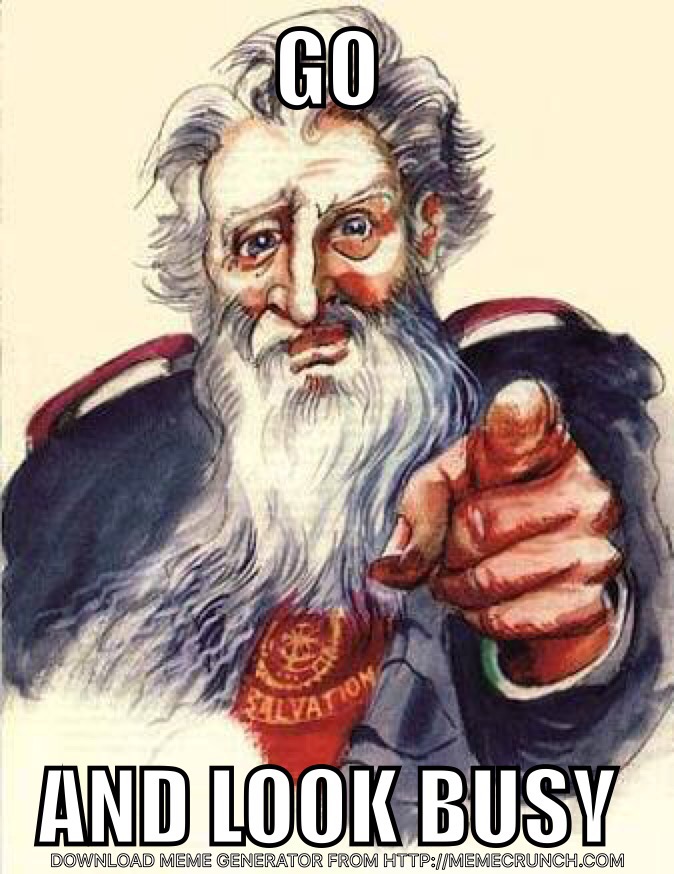
 k day when you have nothing else specifically planned? You go into the office. And do officey things. It’s as if our standing orders are to get to the admin block and look busy.
k day when you have nothing else specifically planned? You go into the office. And do officey things. It’s as if our standing orders are to get to the admin block and look busy.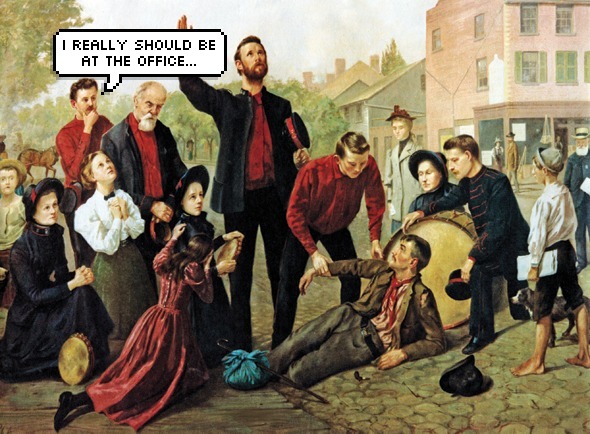 Home League. There are always going to be hospitals that need visiting. There are always going to be prisons that need ministry. There are always going to be homeless people who need a feed. There are always going to be kids at the local school who need help with reading. There are always going to be scales that need to be practised. There are always going to be Facebook posts that need to be made. There are always going to be weights to be lifted. There is always going to be furniture that needs moving at your thrift shop. There are always going to be playgrounds to take your kids to. There are always going to be people needing your prayers. There are always going to be sermons that need writing. There are always going to be assignments that need research. There are always going to be friends who need a chat. And yes, there are always going to be payroll forms to sign.
Home League. There are always going to be hospitals that need visiting. There are always going to be prisons that need ministry. There are always going to be homeless people who need a feed. There are always going to be kids at the local school who need help with reading. There are always going to be scales that need to be practised. There are always going to be Facebook posts that need to be made. There are always going to be weights to be lifted. There is always going to be furniture that needs moving at your thrift shop. There are always going to be playgrounds to take your kids to. There are always going to be people needing your prayers. There are always going to be sermons that need writing. There are always going to be assignments that need research. There are always going to be friends who need a chat. And yes, there are always going to be payroll forms to sign. This story came to mind recently when I received a review copy of Dave Andrews’ 2015 book, The Jihad of Jesus. This book sets out to show that Jihad, a term often associated by non-Muslims with extremism and violence in the name of Islam, is in fact non-violent and more consistent with a life of peace. The author writes explicitly as a Christian who seeks ‘to find a way we can struggle for love and justice that is true to the best in our traditions.’
This story came to mind recently when I received a review copy of Dave Andrews’ 2015 book, The Jihad of Jesus. This book sets out to show that Jihad, a term often associated by non-Muslims with extremism and violence in the name of Islam, is in fact non-violent and more consistent with a life of peace. The author writes explicitly as a Christian who seeks ‘to find a way we can struggle for love and justice that is true to the best in our traditions.’ There are a few different shows and formats in the HBC ecosystem, but the latest addition is a
There are a few different shows and formats in the HBC ecosystem, but the latest addition is a 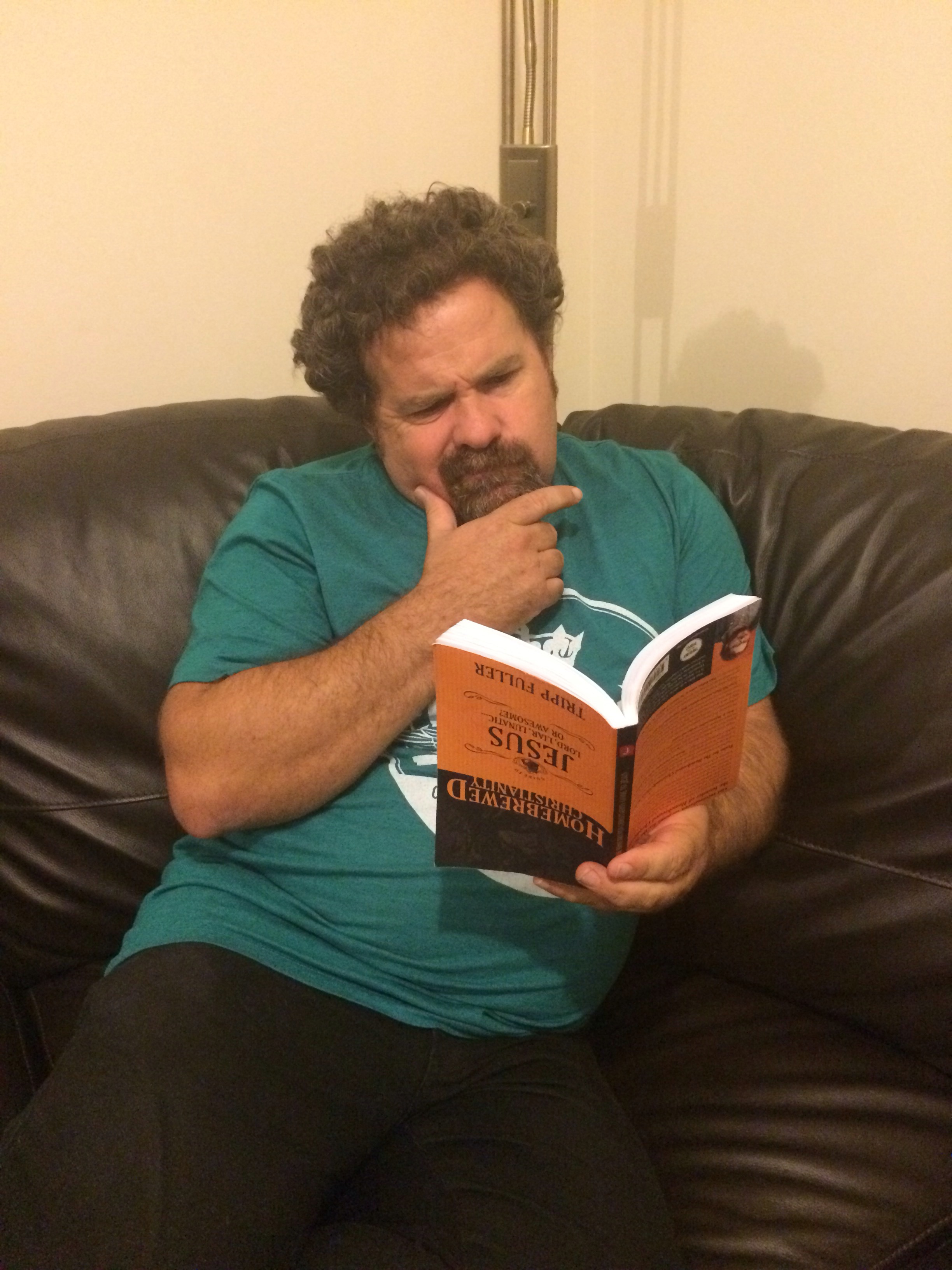
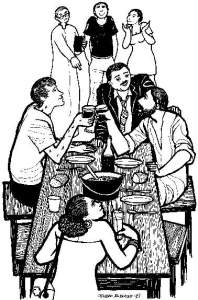
 Second, I heard a voice say, “Breathe in the Holy Spirit.”
Second, I heard a voice say, “Breathe in the Holy Spirit.”